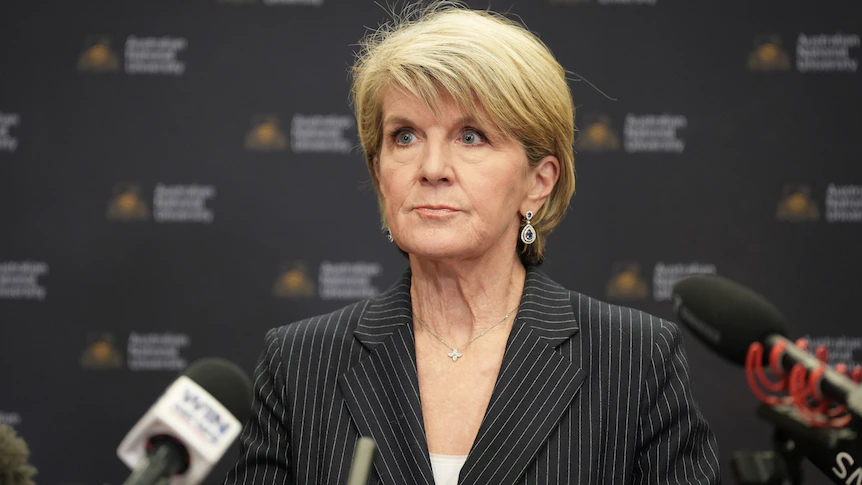By Charlotte Gore
Copyright abc

Australian National University chancellor Julie Bishop has categorically denied allegations of bullying and being “hostile and arrogant” to staff.
Warning: This story contains details some readers may find distressing.
ANU demographer Liz Allen levelled the allegations at Ms Bishop while giving evidence to a Senate committee investigating higher education governance last month.
In a 25-page formal response to the committee, Ms Bishop rejected absolutely the allegations that she had “godlike powers, unchecked” and that a “culture of fear and intimidation” was fostered under her chairmanship of council meetings.
“I reject absolutely … that ‘dissent’ is ‘discouraged’, that Council is ‘dysfunctional and toxic under the current regime’, that elected members are ‘afraid’, that Council is ‘orchestrated cinema to make it appear that what’s happening is legitimate when… it’s not’, or that the nature of Council is ‘divide and conquer’.”
Ms Bishop added that her conduct had always been highly professional, saying she had “never been accused of any behaviour or conduct that remotely reflects, even to the slightest degree, what was alleged” during the Senate hearing.
She was previously on record rejecting the allegations, but her formal written response to the committee provides more detail.
‘No warning about the nature of the testimony’
Ms Bishop also took aim at the Senate committee hearing, saying she was dismayed that witnesses gave testimony in an environment that failed to meet safe workplace standards, particularly with regard to psychosocial safety.
In her letter, Ms Bishop said the committee chair acknowledged in her opening statement at the hearing that it was a workplace, and pointed out that the federal work health and safety regulator considers exposure to traumatic events or material to be a workplace hazard.
“There was no warning about the nature of the testimony likely to be given, and I am concerned that appropriate trauma-informed principles were not applied in relation to her testimony.
“Eliminating that risk or at least taking steps to minimise the risk insofar as was reasonably practicable, should have been the first priority of the Committee both before any witness testified, and during testimony of any witness when the subject matter of the testimony became apparent.”
Ms Bishop said she was able to address and refute each of the allegations made against her during the Senate committee hearing.
But she said to do so in a public response would compromise ongoing workplace grievance processes.
“It would clearly be in my interests to have my name cleared and the damage to my reputation mitigated at the first available opportunity,” Ms Bishop said.
“It would also be in the ANU’s interest to have its Chancellor cleared of these allegations, noting that my actions are inextricably linked with the university.



